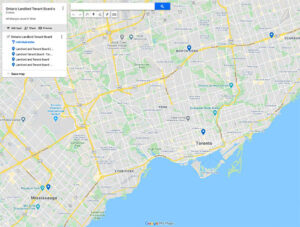Are You a Landlord?
 As a residential landlord, there are a multitude of reasons you may need to notify your tenant and/or commence a legal proceeding by filing an application with the Landlord and Tenant Board (LTB). Some of these reasons are:
As a residential landlord, there are a multitude of reasons you may need to notify your tenant and/or commence a legal proceeding by filing an application with the Landlord and Tenant Board (LTB). Some of these reasons are:
NOTICES TO TENANTS
- The tenant is not paying rent in full and/or on time
- The tenant is interfering with others, causing damage, or overcrowding the rental unit
- The tenant is engaging in or permitting illegal acts to occur in the rental unit
- You need to enter the rental unit for the purpose of repairs and maintenance
- You are increasing the rent
- You are selling the rental unit
- You or a family member intend to move into the rental unit for a minimum period of one (1) year
- You wish to demolish, repair, or convert the rental unit to another use
APPLICATIONS TO THE LANDLORD TENANT BOARD
Where applicable, notices are followed up by applications to the LTB for a hearing date. On the hearing date, with mutual agreement between yourself and your tenant, mediation services are available from the LTB to resolve the issue without proceeding to a formal hearing. Where efforts at mediation fail to resolve the issue, the formal hearing then proceeds (time-permitting), or is rescheduled to a future date.
EVICTIONS & LANDLORD RIGHTS
Evictions are referred to by the LTB as “ending the tenancy.” There are no short cuts to eviction. Your landlord rights, responsibilities, and the processes for enforcement of your rights are set out in the Residential Tenancies Act, 2006, and in Regulations of the Residential Tenancies Act.
Are You a Tenant?
 As a tenant, there are a multitude of reasons you may need to notify your landlord and/or commence a legal proceeding by filing an application with the Landlord and Tenant Board (LTB). Some of these reasons are:
As a tenant, there are a multitude of reasons you may need to notify your landlord and/or commence a legal proceeding by filing an application with the Landlord and Tenant Board (LTB). Some of these reasons are:
NOTICES TO LANDLORDS
- You paid rent above the guideline and need to file for a rebate
- You need the LTB to determine whether the landlord:
- entered the rental unit illegally
- changed the locks without providing replacement keys
- interfered with your reasonable enjoyment of the rental unit
- withheld or interfered with vital services
- harassed, interfered, obstructed, coerced or threatened you
- The landlord, in bad faith, served you with a notice to end your tenancy for personal or family member use; or for sale to a purchaser
- The landlord, in bad faith, served you with a notice to end your tenancy to demolish or repair the rental unit, or convert it to another use
- The landlord is failing to meet its health and safety, and maintenance obligations
APPLICATIONS TO THE LANDLORD TENANT BOARD
Where applicable, notices are followed up by applications to the LTB for a hearing date. On the hearing date, with mutual agreement between yourself and your landlord, mediation services are available from the LTB to resolve the issue without proceeding to a formal hearing. Where efforts at mediation fail to resolve the issue, the formal hearing then proceeds (time-permitting), or is rescheduled to a future date.
EVICTIONS & TENANT RIGHTS
Evictions are referred to by the LTB as “ending the tenancy.” There are no short cuts to eviction. Your tenant rights, responsibilities, and the processes for enforcement of your rights are set out in the Residential Tenancies Act, 2006, and in Regulations of the Residential Tenancies Act.
Landlord Tenant Board Offices
Toll Free 888-332-3234 or Toronto Area 416-645-8080
Landlord and Tenant Board website: http://www.sjto.gov.on.ca/ltb/
| Offices | Address |
| Toronto East Office | 2275 Midland Ave., Unit 2, Toronto, ON, M1P 3E7 |
| Toronto North Office | 47 Sheppard Avenue East, Suite 700, Toronto, ON, M2N 5X5 |
| Toronto South Office | 15 Grosvenor Street, 1st Floor, Toronto, ON, M7A 2G6 |
| Mississauga - Central Office | 3 Robert Speck Parkway, Suite 520, Mississauga, ON, L4Z 2G5 |

 Click for Detailed Map
Click for Detailed Map